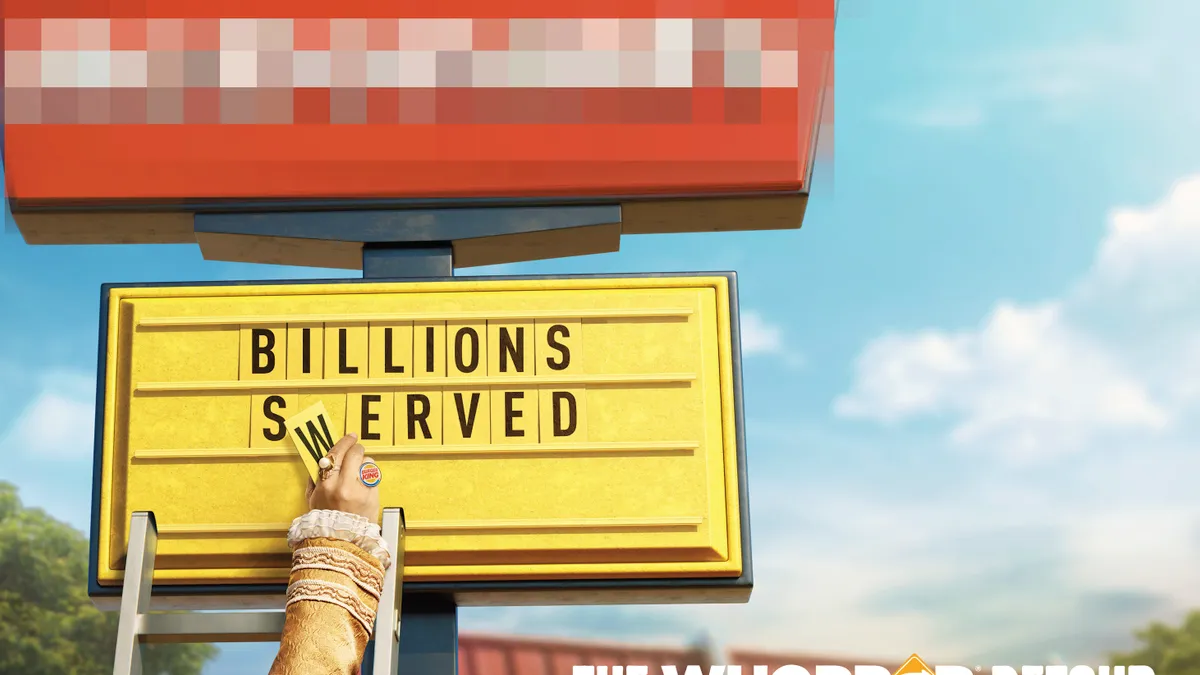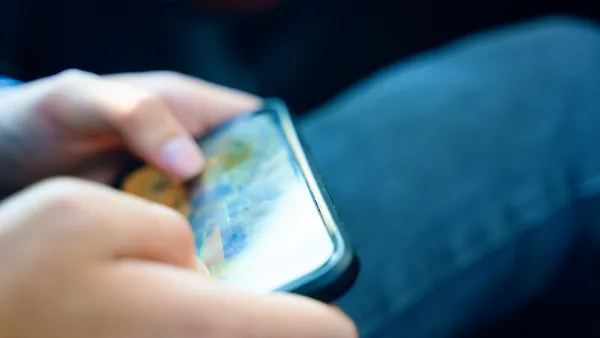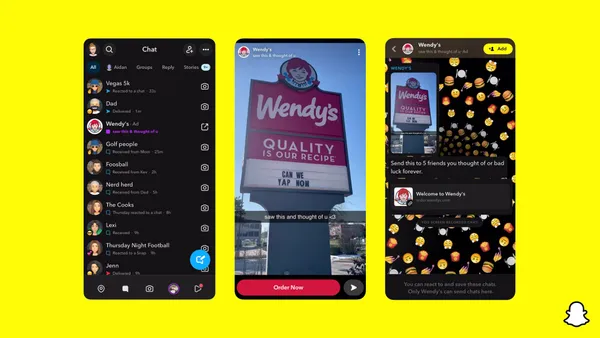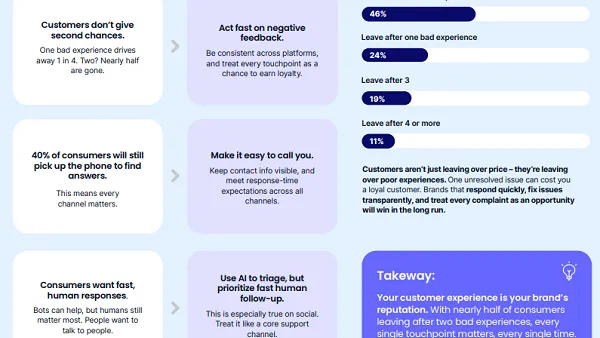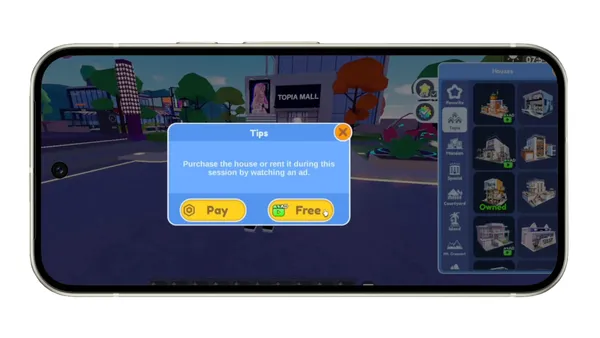Brief:
- Burger King is rolling out a "Whopper Detour" stunt that relies on mobile geofencing to steer customers away from rival McDonald's, according to an announcement. Smartphone users who go within 600 feet of most McDonald's locations can order a Burger King Whopper sandwich for a penny from the burger chain's revamped BK App,
- After customers place the order, the app will navigate them away from McDonald's and toward the nearest Burger King to pick up their food. The Whopper Detour campaign kicked off on Dec. 4 and runs through Dec. 12.
- The Whopper Detour promotion is part of Burger King's effort to promote the order-ahead features of its redesigned mobile app. BK App users are only allowed to redeem the free offer once during the campaign period.
introducing the #WhopperDetour. order a Whopper for a penny only “at” McDonald’s with the BK app. yes, you read that right. drive near a McDonald’s and use the BK app. no need to go to their drive-thru. get yours before December 12th. see details: https://t.co/qvUSSf4yuQ pic.twitter.com/Tya17Xo7J3
— Burger King (@BurgerKing) December 4, 2018
Insight:
Burger King's "Whopper Detour" stunt targets McDonald's customers when they're most in the mood to eat a hamburger. Such "geo-conquesting" campaigns that rely on GPS technology to create a virtual fence around a pre-defined area are a promising application for mobile marketers. Dunkin' tested geo-conquesting in 2014 to send coupons to customers who were near the locations of competitors. That campaign generated a 3.6% coupon redemption rate, making it more effective than other marketing methods, and signaling that Burger King's attempt could drive foot traffic and encourage downloads of its revamped mobile app.
Mobile platforms have become the latest marketing battleground for quick-service restaurants (QSR), with Burger King adding order-ahead features to the BK App to compete with delivery services like DoorDash, Postmates, GrubHub and Uber Eats and archrival McDonald's, which has spent the past two years extending the availability of mobile ordering and payment.
McDonald's mobile push is part of a broader effort to appeal to millennials — its core customers — who had shunned the burger chain in favor of fast-casual restaurants that promised healthier fare. McDonald's mobile efforts have begun to catch on, with the company reporting that it had doubled the pace of app downloads and registered users for its mobile app in Q3 2018. McDonald's said its app had been downloaded about 60 million times, letting the burger chain build a database of customer behavior that provides insights into purchase intent.
Similar to McDonald's, Burger King is placing a greater emphasis on its mobile app and order-ahead features, which could help the burger chain to glean valuable insights into its customers' preferences and adjust its strategy to meet their needs.
Burger King has worked to transform its business since parent company Restaurant Brands International named former CFO Josh Kobza as chief technology and development officer in January. As the "tech czar" of the company, he has pushed to keep up with QSR rivals that have made mobile ordering, payment and delivery a key part of their growth plans. The burger chain this year has run several promotions with food-delivery service DoorDash, including free delivery from 1,300 locations throughout the United States on Labor Day weekend, a marketing takeover of video game streaming platform Twitch and the recent introduction of "Dogpper" treats to appeal to dog owners.


